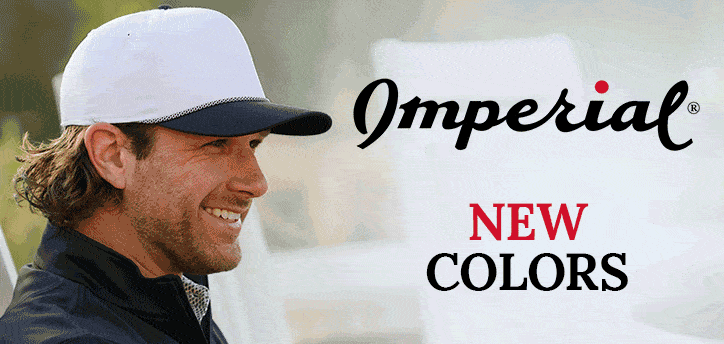When I started cold calling 40 years ago, I quickly learned that asking the right questions – a at the right time and in the right way – is one of the most powerful tools to win business.
Asking effective questions goes far beyond timelines and product specs. It’s about uncovering needs, understanding motivations and discovering the why behind a project. The deeper your understanding, the more targeted, creative and effective your solutions will be – and the more valuable you’ll become to your clients.
Asking good questions is an art. It takes preparation, timing, thought and finesse. It’s not an interrogation; it’s a collaboration. Done right, it builds trust, strengthens relationships and leads to more wins.

Tom Havens
Coach, Exec To Coach
Four Categories Every Salesperson Should Master
Drawing from my experience and ideas from Conceptual Selling and SPIN Selling, there are four types of questions: Strategic, Emotional, Tactical and Commitment.
1. Strategic Questions
These explore your client’s goals, brand identity, messaging, target audience and the rationale behind the project. They set the stage for big-picture thinking.
Examples:
- What are your goals or objectives?
- Tell me about your brand’s mission, values and visuals.
- What’s your message? Why would someone care?
- Who’s your target audience, and what do they know about you?
- What have you done in the past and how did it go?
2. Emotional Questions
These dig into what matters most to the client personally, what they care about, how they define success and what concerns them. Your job is to make them look good. This builds trust and deeper rapport.
Examples:
- How do you feel about this direction?
- What does success look like to you?
- What’s most important to you about this project?
- Are there any areas you’re unsure about?
- What role do you play in the decision process?
3. Tactical Questions
Tactical questions are about logistics, ensuring you understand details like quantities, timelines, budgets and packaging needs. They help avoid surprises.
Examples:
- What’s your budget and how many do you need?
- Do you have a specific idea in mind? Are you open to other ideas?
- How do you envision the imprint?
- When do you need delivery?
- How are these being distributed?
- Are there any packaging needs?
4. Commitment Questions
Commitment questions help create transparency, qualify the opportunity and keep the momentum going. If you get a “I’d like to think about it” comment, the project is dead.
Examples:
- If we meet your budget and timeline, would you be ready to proceed?
- What are the next steps after I send the proposal?
- Who else is involved in the decision?
- Are there any roadblocks we should address?
- Is anything not working for you?
Funnel Your Questions
The order of your questions matters. Think of it like a funnel: start broad and strategic, move into emotional insight, cover tactical details and end with commitment. But remain flexible. Let the client guide the pace and steer the conversation back on track when needed.
How You Ask Matters
The phrasing and tone of your questions are just as important as the content. Ask open-ended questions. Avoid starting with “why,” which can sound accusatory. Ask questions that will invite dialogue and collaboration. Use prompts like:
- “Can you share the thinking behind this?”
- “Tell me more about…”
- “I’m curious to know…”
- “Can you elaborate on that?”
- “If I knew a little more about xxxxx, there’s a better chance we’ll provide ideas that really fit.”
The Question After The Question
This is the most important component in this article. Often, a client’s first answer will be vague. The real insights come from the follow-up questions that dig deeper.
Example:
Client: I need to reorder those tumblers.
You: OK. Great. Remind me again how these tumblers are used?
Client: They’re used for new employees.
You: Interesting, tell me more about that.
Client: Well, when a new employee arrives, we put together a kit with a bunch of stuff that is shipped to their home. This tumbler is one of the pieces.
You: That’s cool. How well does this work for you?
Client: You know, we’ve been doing the same thing for years. So not really sure.
You: We specialize in helping companies elevate their new employees’ experience. We’ve created some super cool, effective kits that truly make new employees feel welcomed along with reinforcing your mission, vision and values. Would you be open to new ideas?
Client: Yes, that sounds great.
Final Thoughts
Not every client wants to answer a bunch of questions and not every project is worthy. For the larger and more complex projects, learn to be more curious, strategic and thoughtful. Do your research, understand this person’s role and be prepared. If you ask better questions, you’ll obtain information that will lead to better concepts and ideas, giving you an advantage over your competition.
When you ask the right questions the right way at the right time, you stop being a salesperson. You become a trusted advisor. And that’s when your business really scales.
Tom Havens, a 40-year industry veteran and coach at Exec to Coach, helps CEOs scale their businesses through smart strategies, creative leadership, design thinking and scalable systems – driving growth, innovation and lasting success.


